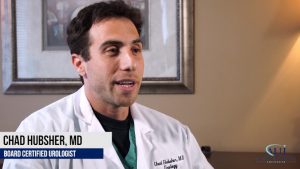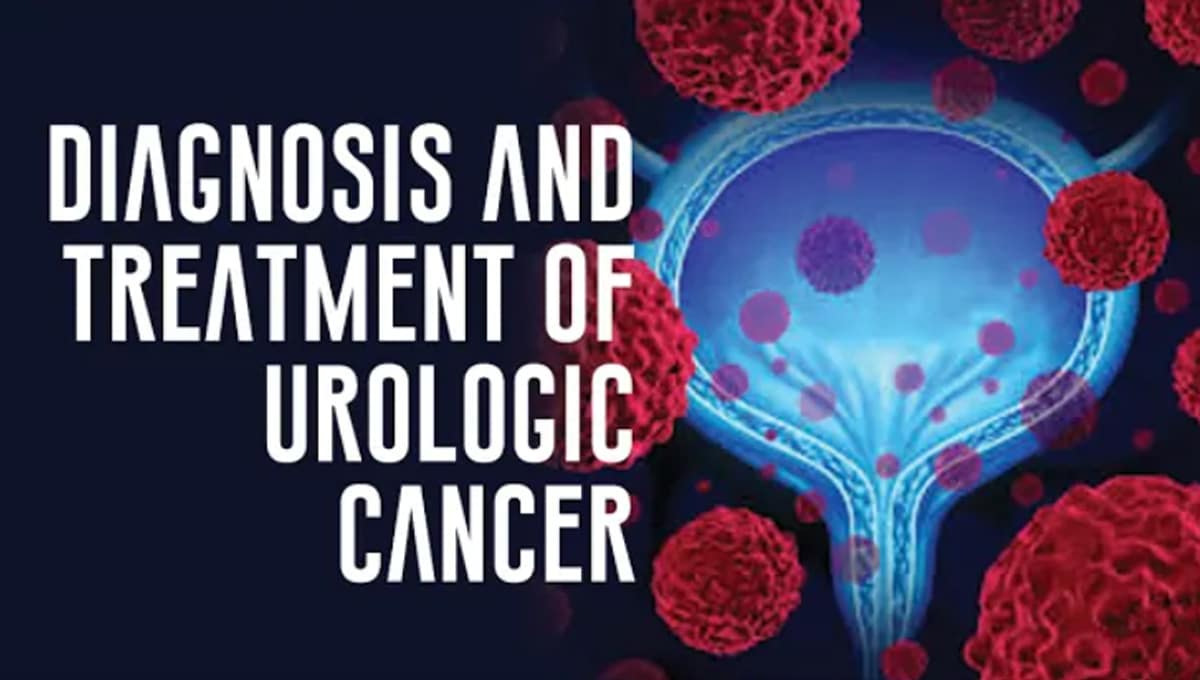Diagnosis of urologic cancers
Diagnosis of urologic cancers usually starts with symptoms, although some patients don’t show symptoms and their tumors are detected during routine imaging. At AUI, our approach to cancer diagnosis includes patients’ symptoms, personal medical history, family medical history, physical examination, screening and diagnostic testing. The symptoms of urologic cancers tend to vary with the type and location of the tumor, but may include abdominal pain, blood in urine, elevated hormone levels, swollen abdomen and enlarged prostate. In terms of diagnostic tests, we often use biopsy, blood tests for hormone levels, digital rectal exam, liver function tests, pelvic exam, renal arteriography, bone scan, ultrasound, urine test, CT scan and MRI scan.
Care after cancer diagnosis
 At Advanced Urology Institute, we understand that diagnosis with urologic cancer is shattering and distressing. So we speak with our patients soon after diagnosis to bring their emotions under control and give them hope. For us the goal is not just to cure cancer but also to prepare and help our patients to face the challenges that may come with the disease. That’s why we work collaboratively with clinicians, researchers, dieticians, nurses, radiotherapists, radiologists and other medical professionals to ensure optimal outcomes are achieved with minimal impact on our patients’ quality of life.
At Advanced Urology Institute, we understand that diagnosis with urologic cancer is shattering and distressing. So we speak with our patients soon after diagnosis to bring their emotions under control and give them hope. For us the goal is not just to cure cancer but also to prepare and help our patients to face the challenges that may come with the disease. That’s why we work collaboratively with clinicians, researchers, dieticians, nurses, radiotherapists, radiologists and other medical professionals to ensure optimal outcomes are achieved with minimal impact on our patients’ quality of life.
Treatment of urologic cancers
We follow a multidisciplinary approach when treating urologic cancers. That means a wide-range of certified medical experts evaluate a patient’s condition and develop a comprehensive, personalized treatment plan depending on the type, stage and location of the cancer and the patient’s overall health. In a number of cases, surgery may be the primary treatment for urologic cancer and we provide minimally-invasive laparoscopy, robotic surgery, percutaneous cryosurgery and reconstructive procedures that deliver optimal outcomes with reduced scarring, less pain and shorter recovery time. Every patient’s candidacy for surgery is evaluated after diagnosis or during first appointment, but we are always confident of taking on some of the toughest cancer cases and striving to provide the best surgical outcomes and patient experience.
AUI also provides a number of advanced urologic cancer therapies. We offer current and investigational treatments and provide advanced radiation therapies including prostate brachytherapy (radiation seed implants). Treatment options for urologic cancer may include chemotherapy, hormone therapy, immunotherapy and radiation therapy. For instance, we deliver targeted regimens of radiation that are sculpted to the shape and size of the tumor ensuring that their impact is focused on cancer cells while limiting exposure of adjacent normal tissues. Likewise, urinary diversion techniques, fertility-preserving options and drugs with fewer side effects are prioritized. And with our extensive team of survivorship and supportive care experts, who help patients and their caregivers to attain and maintain a better quality of life before, during and after treatment, we often achieve great outcomes for our patients.
Recognized leader in care for urologic cancers
Advanced Urology Institute has a urology oncology team that is a nationally recognized leader in the management of urologic cancer. We have state-of-the-art equipment, leading urologists in their field and imaging and pathology experts who are good at what they do. What that means is that our patients get the best possible care at every stage of their journey with cancer. We manage urologic cancers in an outpatient setting, allowing our patients to go home the same day. And when they go home early from our day cancer center, we monitor them very closely. We are proud that, in most cases, our cancer patients do really well.
At AUI, our goal is not just to cure cancer but also to prevent it from spreading and from coming back. We are also committed to working with the local communities and spreading the word for people to get tested early. For more information on the prevention, diagnosis and treatment of urologic cancers, visit the “Advanced Urology Institute” site.


